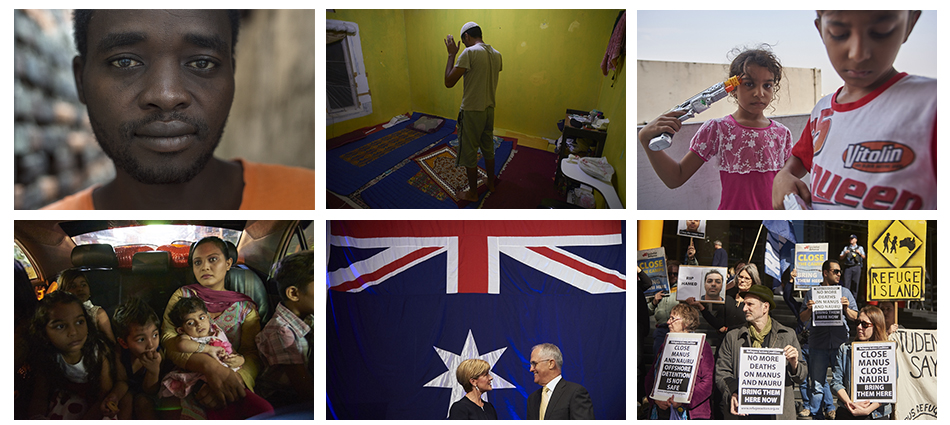Aaron Bunch Journalist with Australian Associated Press | Collection of published work | + 61 484 008 119 | abunch@aap.com.au

Teen repeatedly threatened self-harm, inquest told
An Indigenous teen, who died after self-harming in an adult prison’s youth wing, made eight threats to do so in the hours before he was found in his cell.
April 3, 2024
The first juvenile to die in youth detention in Western Australia threatened to self-harm eight times in the hours before he was found unresponsive in his cell.
Cleveland Dodd’s last night in the troubled youth wing of a high-security adult prison on October 12, 2023, was detailed on Wednesday, the first day of an inquest in Perth.
Counsel assisting the coroner Anthony Crocker said the 16-year-old Indigenous boy had been locked in his Unit 18 cell for most of the day and was frustrated with the length of time he had been in custody after being denied bail earlier in the day.
He also covered a CCTV camera in his cell with tissue paper, blocking the view of correctional staff monitoring him, but they didn’t bother to uncover it until they were fighting to save his life.
Mr Crocker said Casuarina Prison officers were generally reluctant to open detainees’ cell doors at night “due to staffing numbers and risk issues”.
“At 1:35am, Cleveland made a call (from his cell via the intercom to a control room and asked to speak to a particular youth custodial officer and again threatened to self-harm),” he said during his opening submissions.
“That was the eighth time since lockdown that Cleveland had threatened to self-harm.”
The staff member visited Cleveland’s cell and briefly spoke to him before moving on to speak to another detainee, who was considered to be at greater risk.
“It appears that is about this time Cleveland (self-harmed),” Mr Crocker said.
“The detainee next door to Cleveland called down to the control room and … said ‘Cleveland is trying to kill himself … It’s an emergency bro’.”
A video played to the court showed a staff member banging on Cleveland’s cell door soon after.
Mr Crocker said that officer hadn’t been told what the other detainee had reported and didn’t have keys to Cleveland’s cell.
The officer walked to a manager’s office to collect the keys past Unit 18’s nursing post but did not ask for help.
He was also not carrying a radio, which was Department of Justice policy.
“It’s unclear why (the officer) did not ask for assistance from the nurse or any other staff as he was responding to what he had obviously seen,” Mr Crocker said.
At 1.51am, the officer opened Cleveland’s cell door and was joined soon after by a manager, who was also seen on a video walking from his darkened office to the emergency incident as he buttoned up his shirt.
“(He) does not appear to be hurried on this particular night,” Mr Crocker said.
He also appears to have failed to alert the nurse.
A code red alert was called soon after and paramedics arrived at 2.06am, but did not get access to Cleveland for nine minutes.
“It was determined he was in cardiac arrest,” Mr Crocker said.
At 2.17am, Cleveland was partially revived and transported to hospital by 2.52am for further emergency treatment but he had suffered a brain injury due to a lack of oxygen and recovery was not deemed possible.
He died on October 19 surrounded by his family, causing outrage and grief in the community.
Coroner Phil Urquhart earlier said there had never been a similar inquest in WA.
He said it was the first to be held for a young person who had died by “apparent suicide” in a youth detention centre contained in a maximum-security prison built to house adults.
The expedited inquest has also included an unprecedented early level of involvement from the coronial investigators, including examining Cleveland’s cell soon after his death and supervising evidence gathering.
Despite this, Mr Urquhart said the inquest would be a limited fact-finding exercise and he could not make findings of negligence or guilt for criminal offences.
“This inquest like every other is not a royal commission,” he said.
The inquest, which is expected to take 21 days, will happen in two parts, with the first set to conclude on April 12 and the second expected to start in July.
After the opening statements, the court will be closed so counsel and lawyers involved in the inquest and some of Cleveland’s family can view Casuarina Prison CCTV footage from the night the teen self-harmed.
Witnesses who worked at Unit 18 including three youth custodial officers, a nurse and a manager are scheduled to start giving evidence on Friday, with a full day set aside for each.